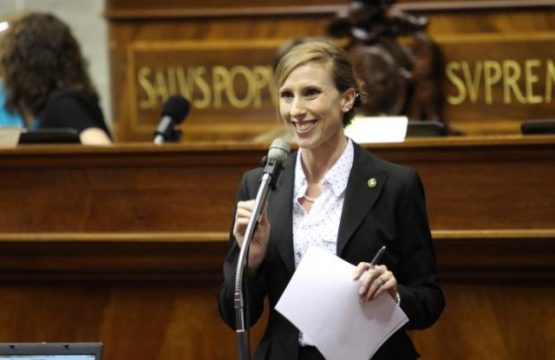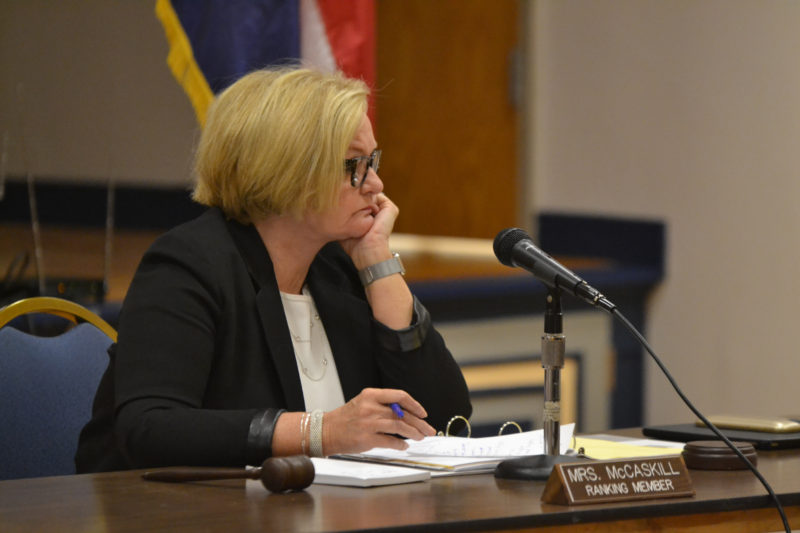JEFFERSON CITY, Mo. – U.S. Sen. Claire McCaskill came back to Jefferson City on a mission to solve what she calls one of America’s worst epidemics – prescription drug abuse and prescription.
McCaskill visited Jefferson City to hold a hearing in her capacity as a ranking member on the U.S. Senate Committee on Aging, the first time she had held a hearing in the Missouri capital city. Among those testifying at the hearing, which consisted mainly of doctors from around the state, was state Rep. Holly Rehder, R-Sikeston. She has fought for a prescription drug monitoring program in Missouri since she came to the Capitol in 2013.
She also has a bill filed this year called the Narcotics Control Act, which would monitor the prescription and sale of certain drugs at pharmacies, most notably pharmaceutical painkillers like Oxycontin and Vicodin.
McCaskill said she finds it embarrassing that Missouri is the only state in the union without such a policy.
“Missourians need to understand how serious this problem this is in our state,” she said. “We are the number one prescriber of opioids in the Midwest. Our law enforcement officials say that heroin is the number one problem the face in Missouri right now, and all of that comes from the prescriptions of painkillers that are being given out.
“We are the only state in the country that is turning our back on a common sense measure which is a prescription drug database that protects people’s privacy, but it also allows law enforcement and doctors to see when someone is abusing pain prescriptions.”

Rehder said that such programs have been successful in other states, and that her town of Sikeston, being close to the borders of Arkansas, Illinois, Kentucky, and Tennessee, saw addicts and abusers coming into the state because of Missouri’s lax monitoring laws.
One of the reasons she is speaking out is not just to inform or pass legislation, but to change the perception of opiate abuse, especially because this issue hits close to home for Rehder. In her testimony, she detailed her own daughter’s struggles to overcome an opioid addiction initiated by a doctor’s prescription of an opiate painkiller for a cut she sustained at work.
“Drug addiction is no respecter of persons, it crosses all socioeconomic stations,” she said during her testimony. She expanded on those thoughts after the hearing.
“I think that many people still think of opiate abuse as… back alley… it’s your drug addicts that are peddling on the streets,” she said. “They don’t think about it as being your mom or your aunt or my cousin. There’s also been reports from law enforcement that heroin dealers are targetting high school students who have had sports injuries because they know they’ve had pills. We have very innocent trails right into addiction.”
However, the path to a PDMP in the past has been a rocky one, largely because of opposition by state Sen. Rob Schaaf, R-St. Joseph, largely based on fears that it would jeopardize the privacy of patients. Rehder said that she respects the legislative process, but that it pained her to see something by so many be curtailed by a singular vote.
“It is so heartbreaking to see that we have just a couple of people or one person that gets to control what gets to come out when you have a majority of representatives who come out and say, this is what my constituents want.”
McCaskill was much more blunt in her assessment.
“I know if I waved a magic wand and locked a certain senator in a closet, we could get this done,” she said during the hearing.










